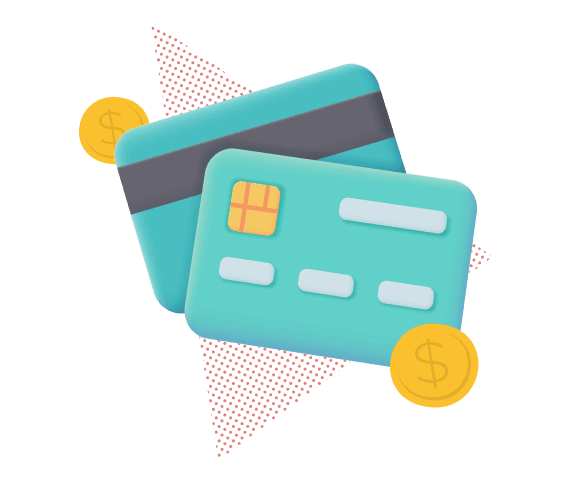What is Penalty APR and How Can You Avoid It in Singapore
Updated: 3 Oct 2025
Written bySingSaver Team
Team
The information on this page is for educational and informational purposes only and should not be considered financial or investment advice. While we review and compare financial products to help you find the best options, we do not provide personalised recommendations or investment advisory services. Always do your own research or consult a licensed financial professional before making any financial decisions.
In Singapore, a penalty Annual Percentage Rate (APR) is a significantly higher interest rate your credit card issuer can apply if you skip or miss payments. Unlike the standard annual percentage rate credit card interest, which is the cost of borrowing, the penalty APR is a punitive measure.
It's designed to discourage late payments and can result in substantial extra charges on your outstanding balance. Understanding what a penalty APR is and how to avoid APR fees is crucial for managing your credit card responsibly.
>> MORE: How to avoid expensive credit card late payment fees
How to figure out your card’s penalty APR
Understanding your credit card's penalty APR is crucial for responsible financial management. Here's how you can find this information:
-
Cardholder agreement: Your credit card's terms and conditions, often provided during the application process or accessible online, will detail the penalty APR. Look for a section discussing "default rates" or "penalty interest rates." This document outlines what triggers the penalty APR, its specific rate, and the duration it applies.
-
Product summary sheet: Most issuers will provide a summary sheet that outlines the essential facts and figures of a credit card. Look for this document. It will contain a summary table or chart detailing key card information, including interest rates and potential penalties.
-
Online banking and statements: Log into your online banking portal or review your credit card statements. Many Singaporean banks provide detailed information about your card's terms, including penalty APR, within these platforms.
-
Customer service: If you're unable to locate the penalty APR information, contact your credit card issuer's customer service hotline. They can provide clarification and guide you through the relevant sections of your cardholder agreement.
Explore credit card terms
Get insights on penalty APR and other essential figures for credit cards in Singapore.
How are penalty APRs carried out
In Singapore, the application of penalty APRs depends on the specific terms and conditions set by your credit card issuer. Therefore, it's essential to refer to your individual cardholder agreement for the most accurate information.
Generally, penalty APRs are triggered by significant delays in payment. This is true no matter if you are holding a cashback credit card, miles credit card, rewards credit card or even a business credit card. However, the exact number of days late that will result in a penalty APR fees varies from card to card. Your cardholder agreement will specify the precise conditions that lead to its application.
Credit card issuers in Singapore are required to provide notification before applying a penalty APR. The notification period will also vary, so consult your cardholder agreement.
The penalty APR can apply to both existing and new balances, leading to significantly higher interest charges. The duration for which the penalty APR remains in effect will also depend on your card's terms. Returned payments, such as bounced cheques, can also lead to penalty APRs, in addition to other fees.
Do all credit cards in Singapore charge a penalty APR
While most credit cards in Singapore include penalty APRs for missed payments, certain premium credit cards, such as those designed for high-net-worth individuals, may waive these penalties as part of their exclusive benefits. These cards typically require excellent credit histories, higher income requirements, and have higher annual fees. Some issuers may also decide to waive penalty APRs under specific conditions, or for customers who have previously demonstrated good credit behaviour.
Are penalty APRs the same as late fees
While both penalty APRs and late fees are consequences of missed credit card payments, they are distinct. A late fee is a one-time charge levied when you fail to make your minimum payment by the due date. These are the late payment charges by a few credit card issuers in Singapore:
-
Citibank: S$120 levied if minimum payment is not received by due date
-
DBS: S$100 levied if minimum payment is not received by due date
-
HSBC: S$100 levied if minimum payment is not received by due date
-
Standard Chartered: S$100 levied if minimum payment is not received by due date
-
UOB: S$100 levied if minimum payment is not received by due date
A penalty APR, on the other hand, is a significantly higher interest rate applied to your outstanding balance when you consistently miss payments. This increased rate affects your ongoing interest charges, meaning you'll pay more interest on your existing balance and any new purchases until the penalty APR period ends.
Essentially, late fees are a single, immediate cost, while penalty APRs have a prolonged impact on your overall interest expenses.
Will a penalty APR affect my credit history?
In Singapore, a penalty APR fee doesn't directly appear as a separate entry on your credit report. However, it's inextricably linked to the missed payments that triggered it, and these missed payments do significantly impact your credit history. When a lender assesses your creditworthiness, they examine your payment history, which is recorded by the Credit Bureau Singapore (CBS). Consistent late payments, which lead to penalty APRs, indicate financial instability and increased risk to potential lenders.
Maintaining a high penalty APR for an extended period suggests ongoing financial difficulties. This can lead to a negative credit history, making it harder to secure loans, mortgages, or even rental agreements in Singapore. Lenders may perceive you as a high-risk borrower, resulting in higher interest rates or outright loan denials.
To recover from penalty APRs and improve your credit history in Singapore, prioritise making timely payments. Pay off outstanding balances as quickly as possible, and consider setting up automatic payments to avoid future lapses.
If you can’t make your credit card payments, inform your issuer to work out an alternative payment plan, or consider exploring temporary side hustles to increase your income. Demonstrating consistent, responsible credit behavior over time is crucial for rebuilding your creditworthiness.
Steps to take if you’re paying a penalty APR
If you’ve been hit by penalty APR fees, here are some steps you can take to deal with the credit card interest:
-
Stop using the card: Avoid adding new charges to the card, as these will also accrue the high penalty APR interest.
-
Catch up on payments immediately: Bring your account current by paying at least the minimum amount due as quickly as possible. This is crucial for starting the process of reversing the penalty APR.
-
Pay off the balance: If possible, pay off the entire credit card balance. This will eliminate the penalty APR's impact on your account.
-
Contact your card issuer:
-
Call your card issuer to discuss your situation. If you have a history of good payment behavior, they may be willing to work with you.
-
Inquire about the specific steps required to reverse the penalty APR and any available options for reducing the interest rate.
-
If your payment was missed due to an error on the side of the bank, make sure to let them know.
-
-
Consider a balance transfer (If eligible): If your credit score allows, explore balance transfer credit cards with 0% promotional periods. Be aware of balance transfer fees.
-
Implement payment reminders to avoid future lapses:
-
Set up payment reminders using your bank's online services or mobile apps.
-
Consider using automatic payments to ensure timely payments in the future.
-
-
Review your budget: Find the cause of the late payments and adjust your budget accordingly.
Find your ideal credit card
Explore the best credit card options from Singapore's top banks to find the perfect fit for your needs
Stay ahead in everything finance
Subscribe to our newsletter and receive insightful articles, exclusive tips, and the latest financial news, delivered straight to your inbox.
About the author
SingSaver Team
At SingSaver, we make personal finance accessible with easy to understand personal finance reads, tools and money hacks that simplify all of life’s financial decisions for you.

